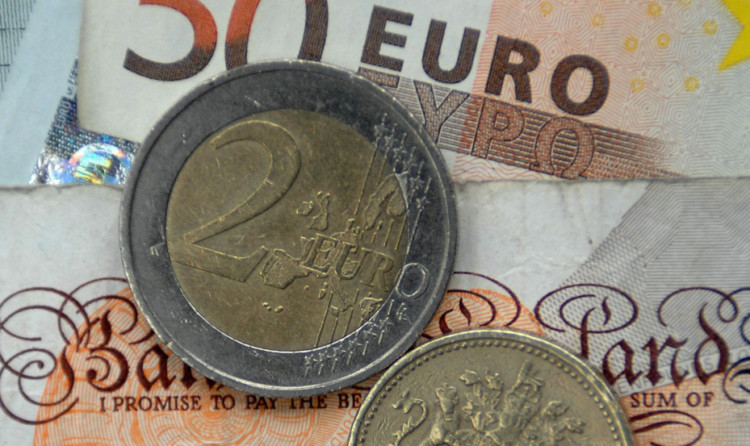Those UK farmers who have not already hedged their euro accounts will discover the value of their Single Farm Payment on Monday on the default date for setting the exchange rate.
The exact rate will not of course be known until then, but on Thursday evening a euro was worth 84.19p.
Last year the rate was a less farmer-friendly 79.85p.
While not risking anything by guessing Monday’s exchange rate, Clydesdale Bank thinks the prospect for the euro/sterling exchange rate looks relatively settled going forward into next year.
It might, however, be slightly below current rates.
“While currency markets remain volatile, possibly pushing euro values down towards 82p before the end of this year, the currency’s value against sterling in 2014 is currently forecast to be around 83p,” said chief economist, Tom Vosa.
“The fading of political risk within the eurozone has been helped by the conclusion of the German election and the general easing of immediate concerns over the Greek crisis.
“This still leaves the euro a little weaker against the pound from its current value, however, as the European Central Bank continues to add liquidity into the eurozone banking system.”
For farmers who are depending on the official exchange calculation on Monday, the use of a single-day rate to set the value of such an important payment inevitably exposes their business to a degree of income risk.
During the last 12 months, for example, the euro has ranged in its sterling exchange value from 79.5p to 87.47p, injecting close to a 10% gain/lose factor into the annual payment.
Many producers control their own SFP exchange rate process by trading euros throughout the year. This is a choice supported by David Hannon, head of agriculture at Clydesdale Bank.
“While those who take control of the currency exchange process themselves can never be guaranteed a euro/sterling benefit in relation to the September 30 rate, their hands-on approach removes the risk of suffering from a currency collapse on the critical conversion day,” he said.
“Locking into an acceptable forward euro/sterling position, or holding SFP in euros until an acceptable currency position is reached, places financial control with the producer concerned, not the marketplace.
“Such income certainty in relation to SFP can play an important part in freeing the business concerned to achieve planning and development efficiencies without having to include an unknown figure in the annual budget.”
